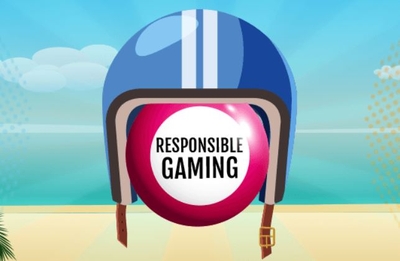 We all know that bingo is loads of fun, that’s the reason we play it in the first place, but it is also gambling, and that can be a bit of an issue for a small percentage of people.
We all know that bingo is loads of fun, that’s the reason we play it in the first place, but it is also gambling, and that can be a bit of an issue for a small percentage of people.
Bingo is a lot cheaper than most other forms of gambling, and the gameplay is much less frenetic too, so it doesn’t tend to attract the same thrill seekers that might head towards the bright lights of a casino for example. That doesn’t mean players don’t need to stay alert though.
For anyone who feels their bingo playing might be running away with them, or who just wants to be on the safe side and put some limits on their spending, there are plenty of responsible gambling tools you can use and we will cover them here.
We also have tips on how to spot signs of a gambling problem, how to avoid getting into that territory in the first place, and where to go if you need some professional help.
So read on, play safe, and keep it fun.
What is Problem Gambling for Bingo Players?

Most bingo players have their own little routine when it comes to how they play.
Whether you head down to the local bingo hall every Tuesday evening with your nan, you play for 30 minutes 5 days a week on your lunch break, or you while away Saturday mornings dabbing virtual bingo cards on your phone, you’ve probably got a regular pattern.
This is great, because it means you can easily spot a problem brewing if that pattern starts to change. For example, if every Tuesday turns into every evening of the week with or without your nan, maybe you need to stop and check in with yourself. If a lunch break session starts spreading into actual work time, or if the Saturday morning session doesn’t finish until Sunday night, the same applies.
Some general warning signs for problem gambling (and bingo is gambling, make no mistake), include but are not limited to:
- Spending more than you can afford to lose
- Lying about your gambling activity
- Choosing to gamble over socialising
- Borrowing or stealing to fund your gambling
- Becoming withdrawn, feeling hopeless, anxious, or frustrated
- Taking days off work to gamble
- Not paying bills on time
- Spending more time or money than usual on gambling
If you start noticing these things in yourself, or in someone you know, you should act before it goes any further. Bingo should remain fun, and if it becomes an issue not only will it damage your life but it will ruin the game for you forever.
You can make sure you never get to this point though by using responsible gambling tools.
Responsible Gambling Tools for Bingo Players
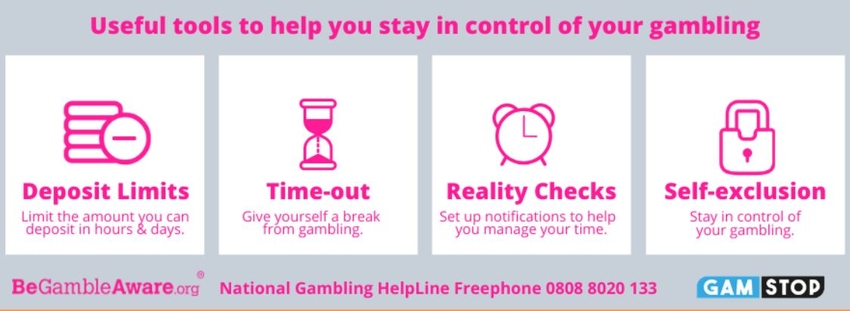
It has never been easier to keep track of your bingo playing than it is today, with sites required to offer safer gambling tools to enable players to set their own limits.
Only 0.5% of players are thought to be problem gamblers, but these tools can help anyone keep track of their time, their spending, and their behaviour.
- Deposit Limit – This tool allows players to set a deposit limit per day/week/month and the site will not let you deposit more. This can be changed, but only when the time period is over.
- Time Limit – This tool will sign you out of your account once you have been playing for a certain amount of time. It may also stop you from signing back in for a while.
- Loss Limit – Instead of restricting your deposit or time of play, this one will stop you playing after you have lost a certain amount decided by you.
- Reminders – These pop up to let you know how long you have been playing, which is very useful if you are in the zone and lose track of time. You won’t be signed out, but they keep you on track. They might also let you know how much you have deposited, won, or lost, so you have a full picture.
- Self Exclusion – For more serious issues, it is possible to disable your account temporarily so that you simply cannot log in until the time period is over. You can even exclude yourself forever if you want to, and the site will never let you use it again.
As you can see there are plenty of options to suit players of all types, whether you are bad with money or lose track of time easily, and some companies go above and beyond and even come up with more innovative tools than this.
Our advice would be to use these tools even if you don’t think you need to. A deposit limit set just above what you usually deposit each week or month, for example, gives you a bit of wiggle room if you are flush one week, but will still stop things going too far.
Tips to Play Bingo Safely
 Although it is possible to get addicted to bingo, it isn’t the main culprit for problem gamblers. Most people with serious issues are sports bettors or casino players.
Although it is possible to get addicted to bingo, it isn’t the main culprit for problem gamblers. Most people with serious issues are sports bettors or casino players.
It is important to stress though that this doesn’t mean bingo can’t be a serious problem, and we certainly don’t want to trivialise how destructive bingo addiction can be, but statistically, it isn’t the most dangerous form of gambling.
For this reason, we would recommend staying away from side games like slots and jackpots if you are worried about addiction. They are much more addictive, expensive to play, and can rip through a bank roll in no time, therefore, they are a bad idea for anyone with an addictive personality.
Some people have a separate bank account for their bingo sessions, and have a direct debit set up each month so that they only have a certain amount to play with. This is also good because you are keeping your gambling money separate and can see what’s going out and what’s coming in.
It is also sensible to use the tools already mentioned and to keep track of how much you spend each week. Most of all, if it stops feeling like fun then go and do something else, as this is a sure sign that things are getting out of control. At the very least take a break to clear your head, we all make bad decisions when we are stressed.
It could make sense to talk about your bingo to people close to you too, so that they can notice any changes and hold you to account – you could even set up a bingo buddy system with a bingo loving friend and keep tabs on each other. Sharing is caring after all!
How do Bingo Websites Safeguard Their Players?

As well as managing your own responsibilities, all online gambling sites, bingo or otherwise, must include software that is designed to spot problem gambling behaviour and flag it to the relevant department. A bit like a lookout on a ship.
That means they are watching your back as well, so any extreme behaviour such as large deposits, increases in time spent playing, etc. will cause the company to check in on you, and if they think you are becoming vulnerable they should step in and check on you, and perhaps limit your account.
Bingo companies also have to check your identity when you first sign up to make sure you are who you say you are and are not an at risk player trying to use a false name in order to gamble.
Any large deposits should be investigated and source of funds checks are often used at this point too, where the company will ask for evidence of your available bankroll to make sure you aren’t spending money you don’t have.
It takes quite a bit of determination to get around all of these protections, so anyone doing it is almost certainly at risk and a problem gambler.
Professional Help for Bingo Addiction
If all else fails and someone finds themselves in trouble, there are organisations and services that exist solely to look after the interests of people with gambling addictions.
GamStop
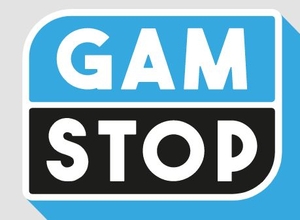 This is a free self-exclusion service designed to keep those who want to stop gambling away from the online services that provide it.
This is a free self-exclusion service designed to keep those who want to stop gambling away from the online services that provide it.
All regulated gambling websites should be signed up with GamStop, and if you want to take control of your situation once and for all these are the guys you should go to.
Once you tell them you don’t want to gamble anymore your name and details will be added to a register which all gambling sites have access to.
If you try to sign up or log in to any of those sites then it will be flagged and you will be stopped from accessing their services.
BeGambleAware
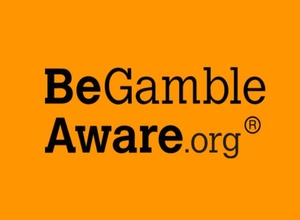 BeGambleAware is a charity which applies for grants in order to pay for prevention and treatment services throughout the UK.
BeGambleAware is a charity which applies for grants in order to pay for prevention and treatment services throughout the UK.
Their website is a hub of responsible gambling help with articles, examples, and lots of other information for those with gambling problems, those worried about them, or those just wanting to get clued up.
They have case studies where other people tell their stories and regular news updates too, so the whole site is current, and feels very friendly. It’s not intimidating or dull so should feel extremely accessible to anyone who needs it.
National Gambling Helpline
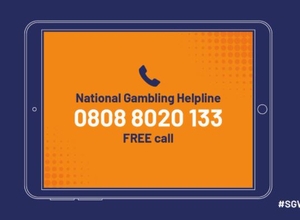 Available 24/7 and 365 days a year, if you want to talk to someone like, right now, the gambling helpline is the number you should call:
Available 24/7 and 365 days a year, if you want to talk to someone like, right now, the gambling helpline is the number you should call:
- 0808 8020133
The line is actually run by BeGambleAware and offers confidential information, support, and advice, to anyone affected by problem gambling including relatives.
They can advise on best next steps over the phone or via live chat, and all call handlers are specially trained for the work involved.
Gamblers Anonymous
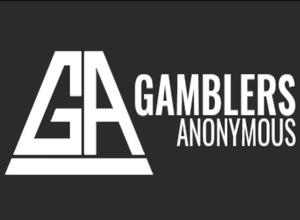 Much like alcoholics anonymous, Gamblers Anonymous is a support and advice group for those struggling with gambling addiction past and present.
Much like alcoholics anonymous, Gamblers Anonymous is a support and advice group for those struggling with gambling addiction past and present.
It is a place to talk with other people who have similar issues rather than a place to go for professional help, but many people find it incredibly useful nonetheless.
It is basically a network with support groups based all over the country who hold regular meet ups so you can go along and meet other people instead of facing the challenges alone.
Gordon Moody Association
 The Gordon Moody Association is a residential support charity, where those with the most serious gambling problems can get away from the world and work on their addiction every day.
The Gordon Moody Association is a residential support charity, where those with the most serious gambling problems can get away from the world and work on their addiction every day.
The charity uses experienced professionals who work with problem gamblers to overcome their addiction, and teach them coping strategies so that they can remain safe in the future.
Some people stay at the centre, others are outpatients, but all get access to the very best care and therapy designed to take back control of their impulses.
Bingo Association Self Exclusion
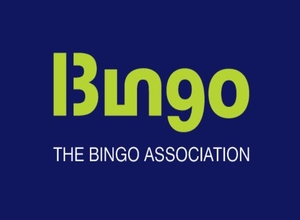 We saved this one for last because it is not actually an online service, it is a land based equivalent to GamStop called the Bingo Industry Self Exclusion Scheme (BISES).
We saved this one for last because it is not actually an online service, it is a land based equivalent to GamStop called the Bingo Industry Self Exclusion Scheme (BISES).
Anyone wishing to self-exclude from playing bingo in bingo halls can sign up and give their details, along with their local bingo clubs, and those clubs should then prevent them from playing in the future.
Their details go on a national database along with an image, so there is protection further afield too.
The Bingo Association have their own website and the organisation are a bit like the voice of the bingo industry in the UK.
